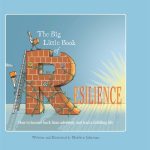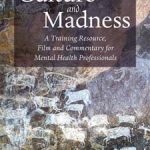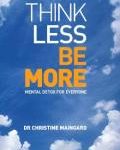This book brings together two bodies of knowledge – wellbeing and recovery. Wellbeing and ‘positive’ approaches are increasingly influencing many areas of society. Recovery in mental illness has a growing empirical evidence base. For the first time, overlaps and cross-fertilisation opportunities between the two bodies of knowledge are identified. International experts present innovations taking place within the mental health system, which include wellbeing-informed new therapies, e-health approaches and peer-led recovery communities. State-of-the-art applications of wellbeing to the wider community are also described, across education, employment, parenting and city planning. This book will be of interest to anyone connected with the mental health system, especially people using and working in services, and clinical and administrators leaders, and those interested in using research from the mental health system in the wider community.
- Explores the relevance of recovery research to the non-mental health community, making this of interest to a wide range of readers including public health specialists, community development workers, and policy-makers across all areas of government
- Applies wellbeing research to mental health services with the expertise of editors and authors who are international leaders in their field
- Brings together two bodies of knowledge, merging content that is interdisciplinary and will lead to scientific advances.
Contents:
- Foreword Martin Seligman
- 1. Why wellbeing and recovery? Mike Slade, Lindsay Oades and Aaron Jarden
- 2. The science of wellbeing and positive psychology Lindsay Oades and Lara Mossman
- 3. Recovery and mental health Mike Slade and Genevieve Wallace
- 4. Wellbeing policy: an overview D. Weijers and Aaron Jarden
- 5. Positive psychology and severe mental ill-health: strengths-based cognitive-behavioural interventions in psychosis Pawel D. Mankiewicz and Julia C. Renton
- 6. Conceptual framework for wellbeing in psychosis Mike Slade and Beate Schrank
- 7. Meaning in life and wellbeing Michael F. Steger
- 8. The complete state model of mental health Corey L. M. Keyes and Chris C. Martin
- 9. Collaborative recovery model: from mental health recovery to wellbeing Lindsay Oades, Frank P. Deane and Trevor P. Crowe
- 10. Positive psychotherapy: a wellbeing approach toward recovery Tayyab Rashid, Ryan N. Howes and Ruth Louden
- 11. WELLFOCUS PPT for psychosis Beate Schrank, Simon Riches and Mike Slade
- 12. Mobile health Dror Ben-Zeev and Nidhi Badiyani
- 13. Wellbeing and recovery in the emergency services: how do we care for those who care for us? Kristen Hamling and Aaron Jarden
- 14. Recovery learning communities and the road to wellbeing Deborah Delman and Jonathan Delman
- 15. Recovery colleges and co-production Geoff Shepherd, Jane McGregor, Sara Meddings and Waldo Roeg
- 16. Wellbeing in non-Western cultures Samson Tse
- 17. Wellbeing policy in Australia and New Zealand R. Jarden, Aaron Jarden and Lindsay Oades
- 18. Population level: wellbeing in the general population Sarah Stewart-Brown
- 19. Community level: translating wellbeing policy, theory and evidence into practice Tony Coggins
- 20. Positive education: visible wellbeing and positive functioning in students L. Waters, J. Sun, R. Rusk, A. Cotton and A. Arch
- 21. Positive tertiary education in a residential setting: Kooloobong Village Lindsay Oades and Gordon B. Spence
- 22. Living well in cities: towards a location-based model of perceived urban liveability Pascal Perez and Mohammad-Reza Namazi-Rad
- 23. Wellbeing enhancing workplaces Kathryn M. Page, Allison J. Milner, Amanda Allisey, Andrew Noblet and Anthony D. LaMontagne
- 24. Need-supportive parenting and its role in the wellbeing and recovery of individuals: a self-determination theory perspective Christopher P. Niemiec and Justin C. Coulson
- 25. Social marketing of wellbeing Ross Gordon and Lindsay Oades
- 26. Wellbeing and recovery: a possible future Lindsay Oades, Mike Slade and Aaron Jarden
- Index.
Editors
Mike Slade, King’s College London, Mike Slade is Professor of Health Services Research in the Health Service and Population Research Department, King’s College London.
Lindsay Oades, University of Melbourne. Lindsay Oades is Associate Professor of Positive Psychology at the Centre for Positive Psychology, University of Melbourne.
Aaron Jarden, Auckland University of Technology. Aaron Jarden is Senior Lecturer in Psychology and Research Officer at the Human Potential Centre, Auckland University of Technology, New Zealand.
Contributors
Martin Seligman, Mike Slade, Lindsay Oades, Aaron Jarden, Lara Mossman, Genevieve Wallace, D. Weijers, Pawel D. Mankiewicz, Julia C. Renton, Beate Schrank, Michael F. Steger, Corey L. M. Keyes, Chris C. Martin, Frank P. Deane, Trevor P. Crowe, Tayyab Rashid, Ryan N. Howes, Ruth Louden, Simon Riches, Dror Ben-Zeev, Nidhi Badiyani, Kristen Hamling, Deborah Delman, Jonathan Delman, Geoff Shepherd, Jane McGregor, Sara Meddings, Waldo Roeg, Samson Tse, R. Jarden, Sarah Stewart-Brown, Tony Coggins, L. Waters, J. Sun, R. Rusk, A. Cotton, A. Arch, Gordon B. Spence, Pascal Perez, Mohammad-Reza Namazi-Rad, Kathryn M. Page, Allison J. Milner, Amanda Allisey, Andrew Noblet, Anthony D. LaMontagne, Christopher P. Niemiec, Justin C. Coulson, Ross Gordon






